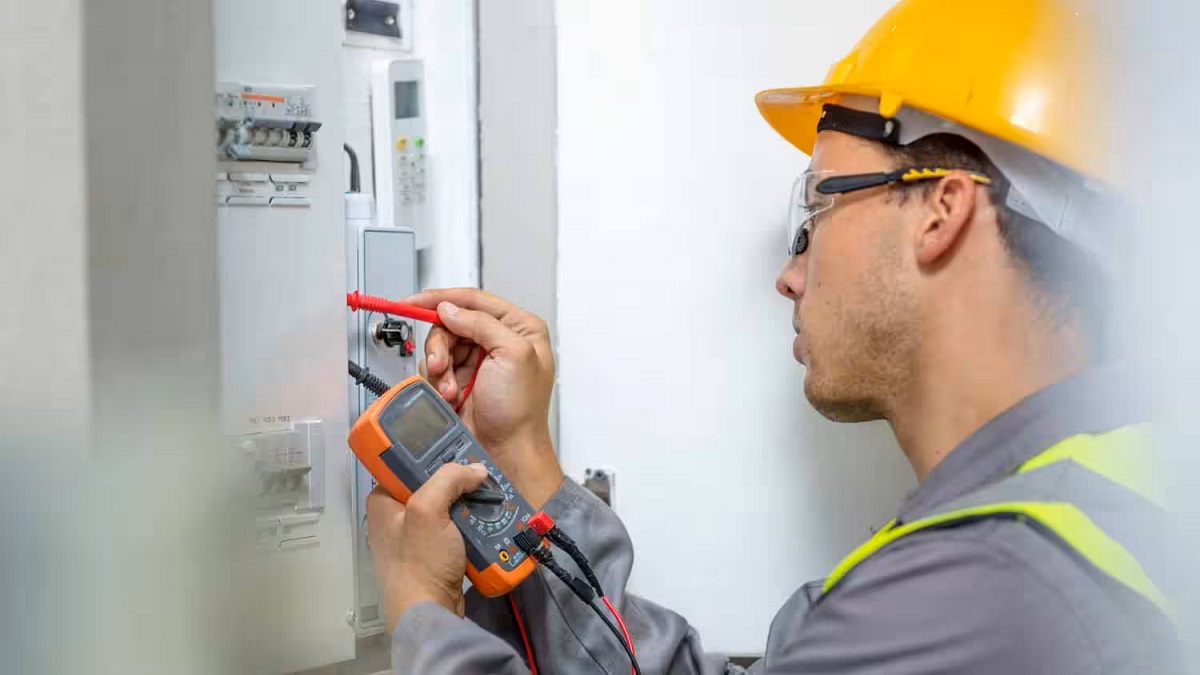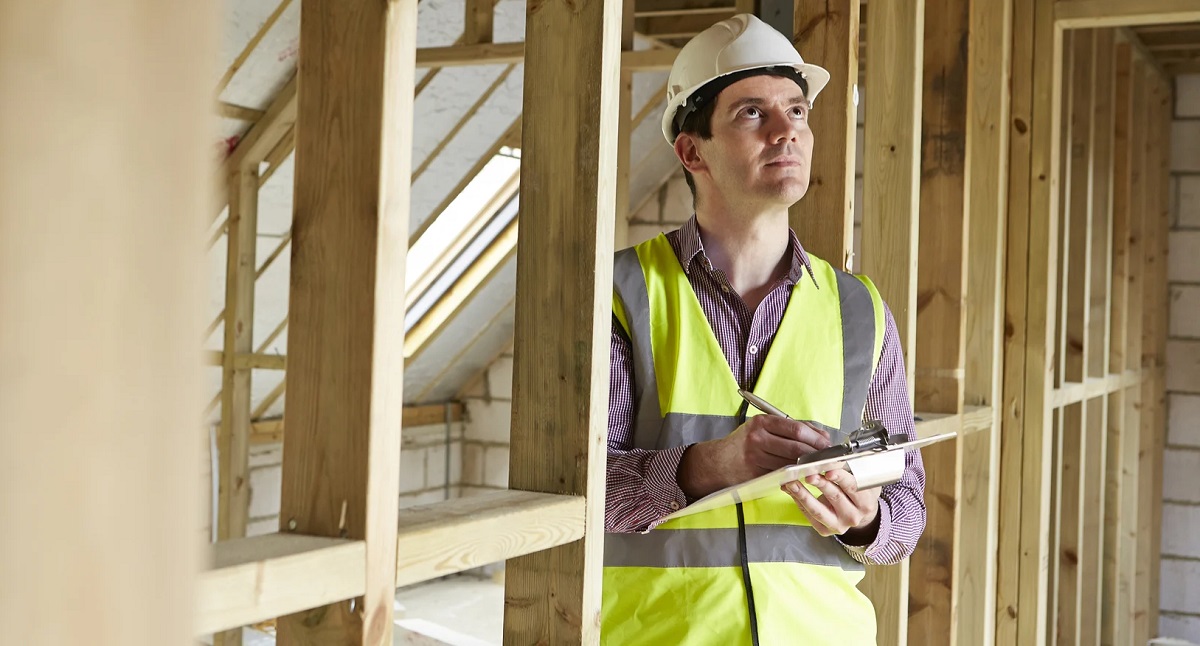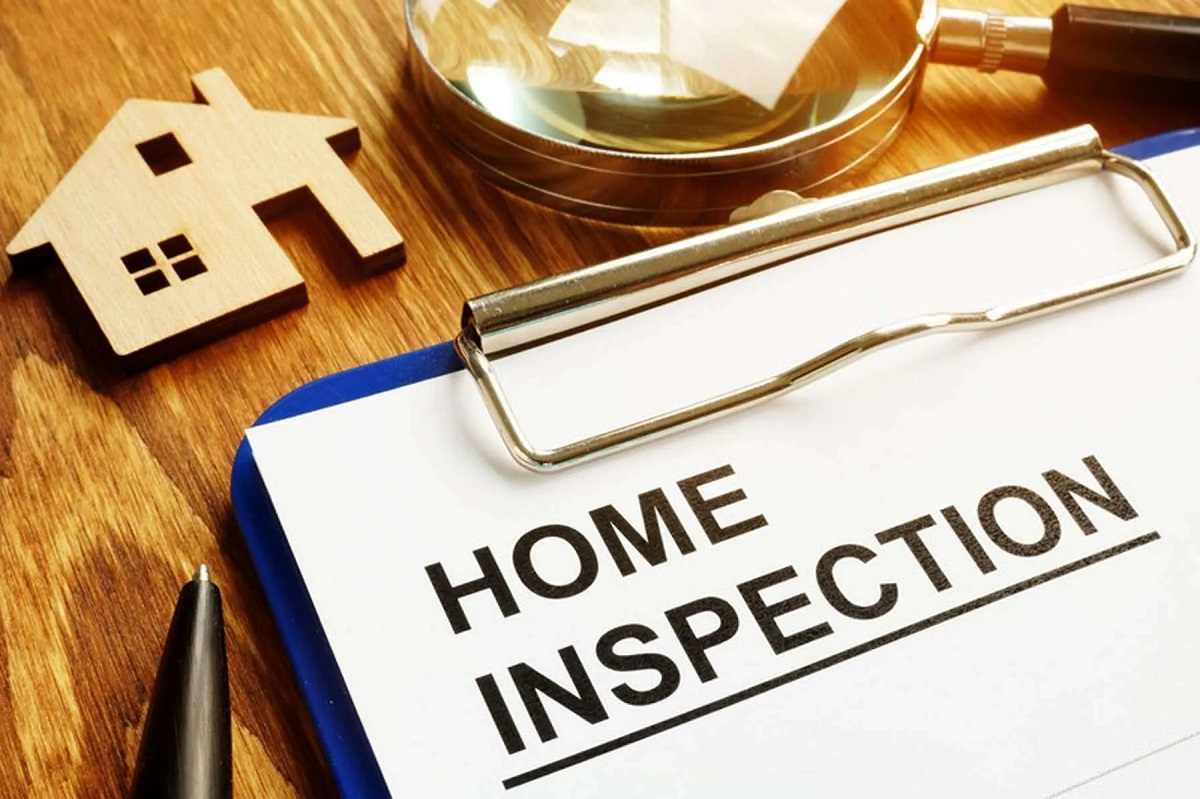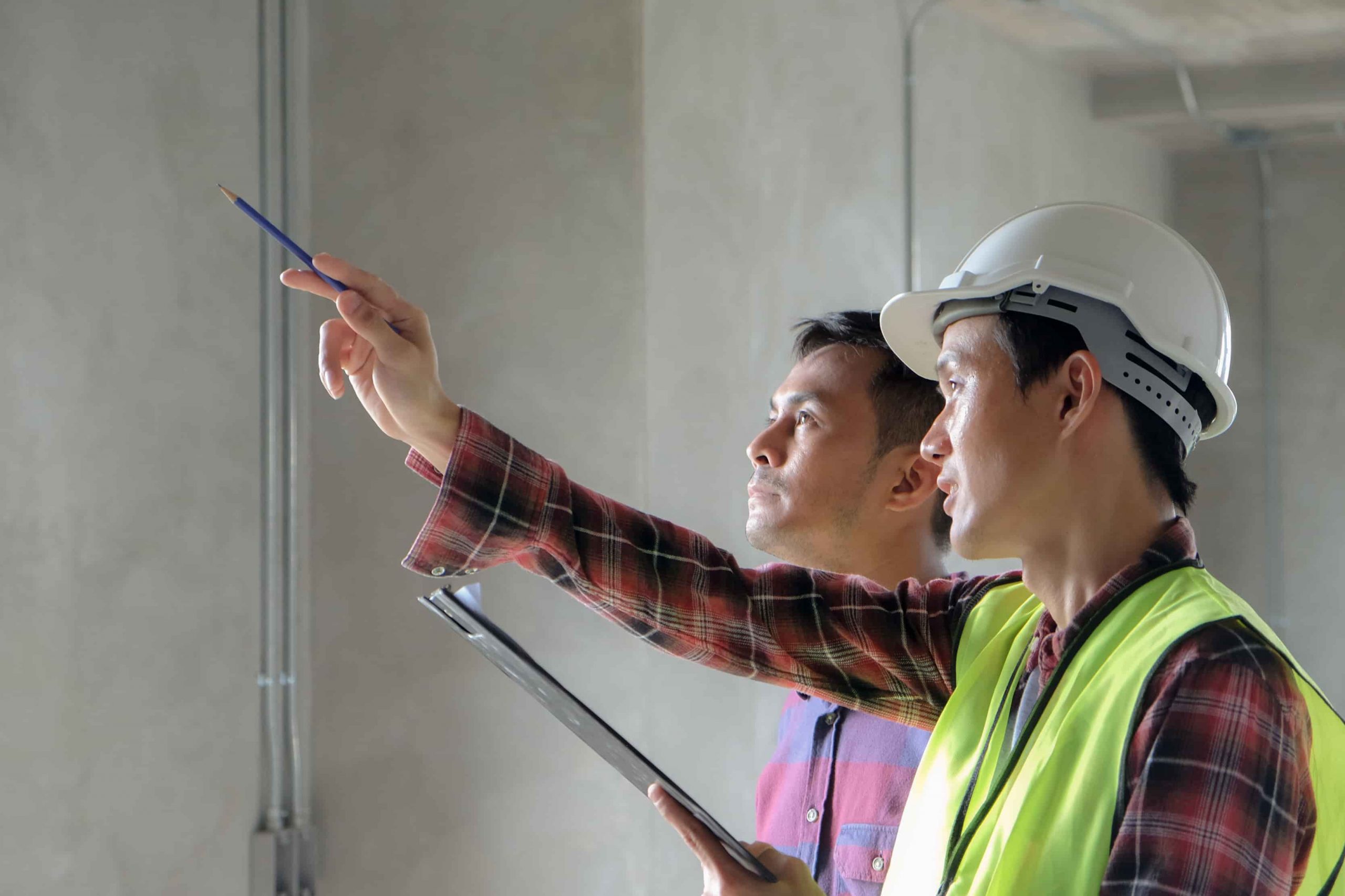Home>Home Maintenance>What Is A Buyer Requested Electrician Inspection


Home Maintenance
What Is A Buyer Requested Electrician Inspection
Modified: March 6, 2024
Looking for a professional electrician? Get a thorough inspection of your home's electrical system by experienced experts. Ensure your home maintenance is up to standard.
(Many of the links in this article redirect to a specific reviewed product. Your purchase of these products through affiliate links helps to generate commission for Storables.com, at no extra cost. Learn more)
Introduction
Welcome to the world of home maintenance! As a homeowner or potential buyer, it’s essential to understand the importance of maintaining the electric systems in your house. One integral part of this process is the buyer’s requested electrician inspection. In this article, we will explore what exactly this inspection entails, why it is crucial, and how you can prepare for its occurrence.
Buying a home is an exciting but often daunting process. There are many things to consider, from the location, size, and overall condition of the property. When you reach the inspection stage, it’s essential to delve deeper into the various systems that keep the house running smoothly. Among these, the electrical system plays a critical role in ensuring the safety and functionality of your home.
The buyer’s requested electrician inspection is a specific type of inspection focused solely on the electrical aspects of the property. During this inspection, a qualified electrician will assess the condition of the electrical wiring, fixtures, and other components of the home’s electrical system. The goal is to identify any potential issues or hazards that could pose a risk to the occupants or require immediate attention.
So why is this inspection so important? Simply put, electrical problems can be hazardous and costly. Faulty wiring, outdated electrical panels, and other issues can lead to power outages, electrical shocks, or even house fires. Identifying these problems before purchasing a property allows you to make informed decisions about the potential risks and costs involved. It also gives you the opportunity to negotiate with the seller for repairs or to factor these issues into your budget.
Before the electrician inspection takes place, it is crucial to prepare the property adequately. This includes ensuring that all areas connected to the electrical system, such as the breaker box, outlets, light fixtures, and switches, are accessible. Clearing any personal belongings or furniture that may hinder the electrician’s assessment is essential. Being prepared not only allows for a more thorough inspection but also saves time, reducing any inconvenience for both the homeowner and the electrician.
In the next section, we will dive deeper into the importance of preparing for the electrician inspection and the steps you can take to ensure a smooth and efficient process. So buckle up, grab a cup of coffee, and let’s get ready for the buyer’s requested electrician inspection!
Key Takeaways:
- Prioritize Safety
Ensure a safe home by preparing for and addressing potential electrical hazards identified during the buyer’s requested electrician inspection. This empowers you to negotiate repairs and upgrades, promoting peace of mind. - Plan for the Future
Use the inspection findings to plan for future maintenance and upgrades, empowering you to make informed decisions about your investment and ensure the long-term health of your home’s electrical system.
Understanding the Role of the Buyer’s Requested Electrician Inspection
When it comes to purchasing a home, the buyer’s requested electrician inspection serves as a crucial step in evaluating the condition of the electrical system. This inspection provides the buyer with valuable insight into the safety and functionality of the property, and allows them to make informed decisions regarding the purchase.
During the buyer’s requested electrician inspection, a qualified electrician thoroughly assesses the electrical systems and components of the home. This includes inspecting the wiring, outlets, switches, circuit breakers, light fixtures, and other electrical devices. The electrician looks for any potential issues or hazards that may be present, such as outdated wiring, faulty outlets, inadequate grounding, or insufficient electrical capacity.
The primary goal of this inspection is to identify any electrical problems that could pose a safety risk or require immediate attention. Electrical issues, if left unaddressed, can lead to power outages, electrical shocks, or even fires. By conducting a thorough inspection, the electrician can identify any potential risks and provide recommendations for repairs or upgrades.
Furthermore, the buyer’s requested electrician inspection allows the buyer to gain a better understanding of the property’s electrical system. This knowledge can help the buyer plan for any necessary upgrades or renovations in the future. It also provides an opportunity to assess the overall condition of the electrical system, ensuring that it meets the buyer’s expectations and requirements.
It’s important to note that the buyer’s requested electrician inspection is separate from the general home inspection. While a general home inspection covers various aspects of the property, including the electrical system, it may not provide the same level of detail or expertise as a dedicated electrician inspection. Therefore, it is highly recommended to specifically request an electrician inspection to ensure a thorough assessment of the electrical system.
Once the inspection is completed, the electrician will provide a detailed report outlining their findings. This report will highlight any identified issues, along with recommendations for repairs or upgrades. Armed with this information, the buyer can make an informed decision about the purchase, negotiate with the seller for necessary repairs, or account for the potential costs of addressing the electrical issues.
In summary, the buyer’s requested electrician inspection plays a vital role in evaluating the electrical system of a property. It ensures the safety and functionality of the home, provides insight into potential issues, and allows the buyer to make informed decisions. So, remember to include this inspection as part of your home buying process to protect your investment and ensure peace of mind.
Preparing for the Electrician Inspection
Preparing for the electrician inspection is essential to ensure a thorough assessment of your home’s electrical system. By taking the necessary steps beforehand, you can help the electrician work more efficiently and effectively, ultimately saving time and ensuring accurate results. Here are some key things to consider when preparing for the electrician inspection:
- Clear access to electrical panels: The electrician will need easy access to the main electrical panel as well as any subpanels in your home. Make sure these areas are clear of any obstructions, such as furniture or storage items, to allow the electrician to perform a proper assessment.
- Accessible outlets and fixtures: Ensure that all outlets, light fixtures, switches, and other electrical components in your home are easily accessible. Move furniture or other objects that may block access to these areas for a thorough inspection.
- Gather relevant documentation: If you have any documentation related to the electrical system, such as permits, previous inspection reports, or records of recent repairs or upgrades, gather them and provide them to the electrician. This information can give them a better understanding of the history and condition of the electrical system.
- Inform the electrician about specific concerns: Prior to the inspection, communicate any specific areas of concern or issues you have noticed with your electrical system. This will help the electrician focus on these areas and conduct a targeted inspection.
- Prepare a list of questions: Take some time to compile a list of questions or areas you would like the electrician to address during the inspection. This could include inquiries about the age of the electrical system, the presence of any potential hazards, or recommendations for upgrades or improvements.
- Plan for a convenient time: Coordinate with the electrician to schedule the inspection at a time that is convenient for both parties. Ensure you are available to be present during the inspection so that you can ask questions and gain a better understanding of the findings.
By following these preparatory steps, you can help ensure a smooth and efficient electrician inspection. Providing clear access to electrical panels and components, gathering relevant documentation, sharing specific concerns, and preparing a list of questions will help the electrician focus on the areas that require attention and address your specific needs as a homeowner.
Remember, the purpose of the electrician inspection is to thoroughly evaluate your electrical system’s safety and functionality. By preparing adequately, you are not only assisting the electrician but also actively participating in the process to gain a better understanding of your home’s electrical condition.
Now that you’re ready for the inspection, let’s move on to the next section to find out what you can expect during the electrician inspection process.
What to Expect During the Electrician Inspection
When it comes to the electrician inspection, knowing what to expect can help you prepare mentally and be better equipped to address any potential issues that may arise. Here is an overview of what you can expect during the electrician inspection process:
- Thorough examination of the electrical system: The electrician will conduct a comprehensive examination of your home’s electrical system, including the wiring, outlets, switches, lighting fixtures, and electrical panels. They will assess the condition of these components, looking for any signs of wear, damage, or outdated materials.
- Testing of electrical outlets and fixtures: The electrician will test the functionality of electrical outlets throughout the home to ensure they are in proper working order. This may involve plugging in testing devices or using tools to measure voltage levels. They will also examine light fixtures to ensure they are safely installed and functioning correctly.
- Inspection of the electrical panel: The electrical panel is the hub of your home’s electrical system. The electrician will carefully inspect the panel and its components, including circuit breakers, fuses, and wiring connections. They will check for any signs of damage, overloaded circuits, or outdated equipment.
- Verification of electrical grounding: Proper electrical grounding is crucial for electrical safety. The electrician will inspect the grounding system to ensure it is intact and installed correctly. They will also check for any grounding issues that could potentially pose a safety risk.
- Identification of hazards and code violations: The electrician will be on the lookout for any potential hazards or code violations in the electrical system. This could include exposed wiring, improper installation, or outdated electrical components that may no longer meet current safety standards.
- Recommendations for repairs or upgrades: Based on their findings, the electrician will provide you with a detailed report outlining any issues or areas of concern. They will make recommendations for repairs or upgrades that may be necessary to ensure the safety and functionality of your home’s electrical system.
- Guidance and advice: Throughout the inspection, the electrician will offer guidance and advice about maintaining your electrical system and preventing future issues. They may provide tips on energy efficiency, proper use of electrical appliances, or advice on when to consider upgrading certain components.
It’s important to keep in mind that the electrician’s primary objective is to identify any potential electrical hazards or issues that could pose a safety risk. Their assessment is focused on ensuring the electrical system is safe and functioning properly, rather than evaluating cosmetic or aesthetic aspects.
During the inspection, feel free to ask questions and seek clarification on any findings or recommendations. The electrician is there to help you understand the condition of your electrical system and address any concerns you may have. Take advantage of this opportunity to gain knowledge about your home’s electrical system and how to maintain it effectively.
Now that you have an idea of what to expect during the electrician inspection, let’s explore some of the common issues that are often found during these inspections in the next section.
Common Issues Found During Electrician Inspections
During an electrician inspection, several common issues may arise, highlighting areas that require attention or potential safety hazards. Identifying these issues is key to maintaining a safe and functional electrical system in your home. Here are some of the common issues that are often found during electrician inspections:
- Outdated wiring: One of the most common issues found during electrician inspections is outdated wiring. Older homes may still have knob and tube wiring, which is considered unsafe by modern standards. Aluminum wiring, commonly installed in houses built during the 1960s and 1970s, can also pose fire hazards due to its high susceptibility to overheating and corrosion.
- Faulty electrical panels: Electrical panels that are outdated or poorly maintained can present safety risks. For example, panels with fuses instead of circuit breakers may not provide adequate overcurrent protection. Additionally, panels that are overcrowded with circuits or have loose connections increase the risk of electrical fires or component failures.
- Insufficient grounding: Proper grounding is essential for electrical safety. Inadequate or improperly installed grounding can result in electrical shocks and damage to electronic devices. Common issues include missing or disconnected ground wires, corroded ground rods, or improper grounding of electrical outlets.
- Overloaded circuits: Overloaded circuits occur when too many electrical devices are connected to a single circuit, causing the wiring to carry more current than it can handle. This can lead to overheating, tripped breakers, or even electrical fires. Identifying and redistributing the load on overloaded circuits is crucial to prevent future issues.
- Improperly installed outlets: Outlets that are incorrectly installed pose safety risks and may not function properly. Common issues include loose connections, reversed polarity, or outlets not grounded. These issues can lead to electrical shocks, damage to appliances, or potential fire hazards.
- Inadequate GFCI protection: Ground Fault Circuit Interrupters (GFCIs) are essential for protecting against electrical shocks in areas where water is present, such as kitchens, bathrooms, and outdoor outlets. Insufficient or missing GFCI protection in these areas can pose significant safety risks, especially in older homes or during renovations.
- Defective wiring connections: Poorly connected wires can cause electrical problems such as flickering lights, intermittent power outages, or overheating. Loose or exposed wires increase the risk of electrocution and can lead to short circuits or electrical fires.
- Inadequate number of outlets: Homes with a limited number of outlets may rely on power strips or extension cords, potentially overloading circuits and creating fire hazards. Ensuring an adequate number of outlets throughout the house can help distribute the electrical load more safely.
Keep in mind that these are just a few examples of the common issues that electricians may find during inspections. Each home is unique, and the specific issues present will vary. The electrician will provide a detailed report outlining the specific findings and recommendations tailored to your home’s electrical system.
Addressing these issues promptly is crucial for maintaining the safety and functionality of your electrical system. Be sure to consult with a qualified electrician to address any identified issues and ensure that your home’s electrical system is in good working order.
Next, let’s delve into how to address the findings of the electrician inspection and ensure that any necessary repairs or upgrades are taken care of.
Tip: When a buyer requests an electrician inspection, make sure to hire a licensed and experienced electrician to thoroughly check the electrical system for any safety hazards or code violations. This will help ensure the home is safe and up to standard.
Read more: What Is A Buyer’s Inspection Advisory?
Addressing the Findings of the Electrician Inspection
After the electrician inspection, you will receive a detailed report outlining the findings and recommendations for your home’s electrical system. It’s crucial to address these findings promptly to ensure the safety and proper functioning of your electrical system. Here are some steps to consider when addressing the findings of the electrician inspection:
- Prioritize safety hazards: Start by addressing any safety hazards identified during the inspection. This includes issues such as exposed wiring, faulty electrical panels, or inadequate grounding. Addressing these hazards should be the first step to ensure the safety of your home and its occupants.
- Consult with a qualified electrician: If you’re unsure about how to proceed or if the identified issues require professional expertise, consult with a qualified electrician. They can provide guidance on the necessary repairs or upgrades and ensure that the work is carried out safely and in compliance with electrical codes.
- Obtain multiple repair quotes: For major repairs or upgrades, it’s wise to obtain multiple quotes from licensed electricians. This will help you compare costs and ensure that you’re getting a fair price. Remember, the cheapest option is not always the best, so consider the reputation and experience of the electricians as well.
- Create a repair timeline: Assess the urgency of the identified issues and create a repair timeline accordingly. Some issues may require immediate attention, while others could be addressed over time. Prioritize the repairs based on safety concerns, budget constraints, and the impact on your daily life.
- Communicate with the seller: If you’re in the process of buying a home and the inspection uncovers significant electrical issues, communicate with the seller to discuss potential repairs or negotiate the purchase price. This can help you reach a fair agreement and ensure that the electrical issues are resolved before finalizing the deal.
- Consider preventive maintenance: In addition to addressing the specific issues identified during the inspection, consider implementing a preventive maintenance plan for your electrical system. Regular maintenance, such as checking for loose connections, tightening screws, or replacing outdated components, can help prevent future issues and extend the lifespan of your electrical system.
- Maintain proper documentation: Keep copies of the inspection report, repair invoices, permits, and any other relevant documentation related to the electrical repairs or upgrades. This documentation can serve as valuable records for future reference, especially if you decide to sell the property.
Remember, addressing the findings of the electrician inspection is essential for the safety and functionality of your home’s electrical system. Whether it’s repairing faulty wiring, replacing an outdated electrical panel, or upgrading inadequate outlets, investing in the necessary repairs or upgrades will provide peace of mind and protect the value of your property.
Lastly, it’s worth mentioning that regular maintenance and periodic electrical inspections can help prevent major issues and identify potential problems before they become costly or dangerous. Make a habit of scheduling regular electrical inspections and staying proactive in maintaining your home’s electrical system.
Now that you know how to address the findings of the electrician inspection, let’s explore the benefits of having a buyer’s requested electrician inspection in the next section.
Benefits of a Buyer’s Requested Electrician Inspection
Opting for a buyer’s requested electrician inspection offers several advantages to both home buyers and sellers. This inspection provides valuable information about the condition and safety of the property’s electrical system, empowering buyers to make informed decisions about their purchase. Let’s explore some of the key benefits of a buyer’s requested electrician inspection:
- Identifying potential hazards: The primary benefit of an electrician inspection is the ability to identify potential electrical hazards that may exist within the property. These hazards can include outdated wiring, faulty electrical panels, inadequate grounding, or improperly installed fixtures. Identifying these hazards allows for their timely mitigation, ensuring the safety of the occupants.
- Negotiating power for buyers: With the findings from an electrician inspection in hand, buyers gain a stronger negotiating position. They can use the inspection report to request repairs or upgrades from the seller, potentially reducing the purchase price or obtaining a credit to cover the cost of necessary electrical work. This empowers buyers to make informed decisions and seek fair terms during the real estate transaction.
- Accurate assessment of the property’s value: An electrician inspection provides an accurate assessment of the property’s electrical system. This information allows buyers to determine if the property aligns with their expectations and budget. It also helps them calculate potential costs for future repairs or upgrades, giving a clearer picture of the property’s overall value.
- Promoting peace of mind: Knowing that the electrical system has been thoroughly inspected and any potential issues have been addressed provides peace of mind to buyers. It allows them to move forward with the purchase, confident in the safety and functionality of their new home’s electrical system.
- Preventing post-purchase surprises: By identifying and addressing electrical issues before the purchase, a buyer’s requested electrician inspection helps prevent post-purchase surprises. Addressing these issues upfront saves buyers from unexpected expenses and potential disruptions after moving into the property.
- Opportunity for future planning: The inspection provides valuable insight into the overall condition of the electrical system. It highlights areas that may require future upgrades or maintenance, allowing buyers to plan accordingly. This knowledge can help with budgeting for potential electrical improvements or renovations down the line.
A buyer’s requested electrician inspection is an investment in the safety and long-term value of a property. It provides buyers with critical information to make informed decisions and negotiate repairs or upgrades with the seller. Moreover, it offers buyers peace of mind and the confidence that they are investing in a home with a safe and reliable electrical system.
Now that we’ve explored the benefits of a buyer’s requested electrician inspection, let’s take a look at the potential costs associated with such inspections in the next section.
Potential Costs of an Electrician Inspection
Understanding the potential costs associated with an electrician inspection is crucial for home buyers and sellers. While the specific fees may vary depending on various factors such as location and the size of the property, it’s important to budget for this expense. Here are some potential costs to consider:
- Inspection fee: The electrician typically charges an inspection fee for their time and expertise. This fee usually covers the assessment of the property’s electrical system, the generation of a detailed report, and any necessary recommendations. The exact cost will vary, so it’s important to get multiple quotes from reputable electricians to ensure a fair price.
- Additional testing: In some cases, the electrician may need to conduct additional tests or diagnostics beyond the standard inspection. This could include specialized tests for specific components or the use of specialized equipment. These additional tests may incur extra costs, so it’s important to discuss this with the electrician and understand what is included in the inspection fee.
- Repairs or upgrades: If the electrician identifies any issues during the inspection, there may be additional costs associated with repairs or upgrades. The cost will depend on the complexity and extent of the necessary work. It’s important to obtain multiple quotes from licensed electricians to ensure competitive pricing and quality workmanship.
- Permit fees: In some cases, depending on your location and the scope of the electrical work required, obtaining permits may be necessary. Permit fees vary based on the location and the type of work being done. These fees cover the cost of the permit application and inspection by local authorities to ensure compliance with electrical codes and regulations.
- Future maintenance and upgrades: While not directly associated with the initial electrician inspection, it’s important to consider potential future maintenance and upgrades. It’s recommended to set aside a budget for routine maintenance, such as electrical panel inspections or wiring checks, as well as for future upgrades or renovations that may be needed down the line.
It’s worth noting that the cost of an electrician inspection is a wise investment in your safety and the overall condition of your home. It provides valuable information about the electrical system and can potentially save you from costly repairs or renovations in the long run.
When budgeting for an electrician inspection, consider it as an essential part of the home purchasing or selling process. The cost of the inspection may vary depending on the size and complexity of the property, but it is a relatively small expense compared to the potential risks and costs associated with an unsafe or malfunctioning electrical system.
Now that you have a better understanding of the potential costs associated with an electrician inspection, it’s time to conclude our exploration of the topic.
Conclusion
Congratulations! You have now gained a comprehensive understanding of the buyer’s requested electrician inspection and its importance in the home buying process. By taking the time to delve into the electrical system of a property, you can ensure the safety, functionality, and value of your investment.
During the electrician inspection, a qualified professional thoroughly assesses the electrical components of the home, identifying potential hazards, outdated wiring, faulty panels, and other issues that may be present. Armed with this information, you can negotiate repairs or upgrades with the seller, make informed decisions about the purchase, and plan for future maintenance or improvements.
To prepare for the inspection, ensure clear access to electrical panels and components, gather relevant documentation, and communicate any specific concerns to the electrician. This will allow for a thorough assessment and provide you with accurate insights into the condition of the electrical system.
During the inspection, expect a comprehensive evaluation of the electrical system, including wiring, outlets, switches, lighting fixtures, and electrical panels. The electrician will provide a detailed report outlining their findings and recommendations, allowing you to address any identified issues and prioritize repairs or upgrades.
By addressing the findings of the electrician inspection promptly, you can maintain the safety and functionality of your electrical system. Consult with qualified electricians, obtain multiple quotes, and create a repair timeline to address the identified issues. Keeping proper documentation will also prove useful for future reference or potential resale of the property.
While there are costs associated with an electrician inspection, consider it as an investment in your safety and the long-term value of your home. The inspection provides peace of mind, empowers you in negotiations, and prevents post-purchase surprises. Additionally, by budgeting for future maintenance and upgrades, you can ensure the continued health of your electrical system.
Remember, the buyer’s requested electrician inspection offers numerous benefits, including identifying potential hazards, negotiating power, accurate assessment of the property’s value, peace of mind, and the ability to plan for the future.
Now armed with this knowledge, you can confidently navigate the home buying process, making informed decisions about your investment and ensuring the electrical system of your new home is safe and reliable.
So go ahead, embrace this valuable tool and embark on the journey of purchasing a home with the peace of mind that comes from a thorough buyer’s requested electrician inspection!
Frequently Asked Questions about What Is A Buyer Requested Electrician Inspection
Was this page helpful?
At Storables.com, we guarantee accurate and reliable information. Our content, validated by Expert Board Contributors, is crafted following stringent Editorial Policies. We're committed to providing you with well-researched, expert-backed insights for all your informational needs.














